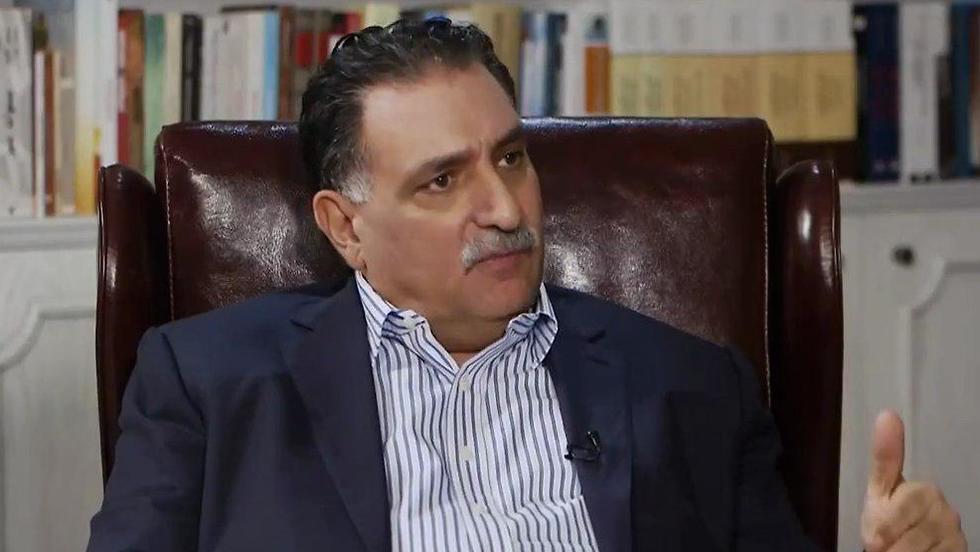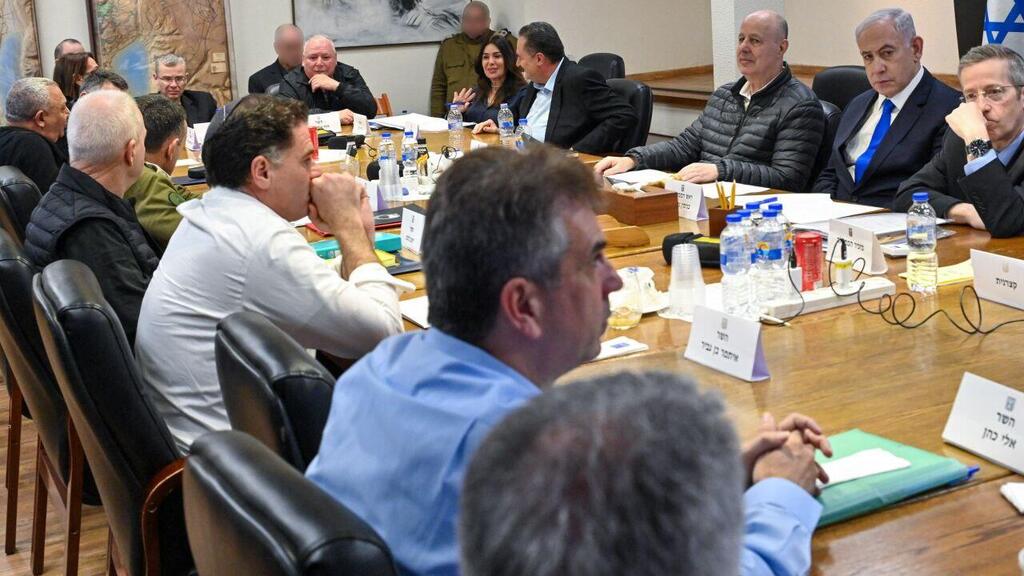Former Knesset member for the Israeli Arab Balad Party, Azmi Bishara, served as a "key figure" in drafting the outline of the hostage deal that was presented in Paris, the French newspaper Le Figaro reported on Sunday.
2 View gallery


Former Israeli Arab Knesset member Azmi Bishara fled Israel to Doha in 2007 after being suspected of spying for Hezbollah
A Qatari official told the newspaper that Bishara, who fled Israel to Doha in 2007 after being suspected of spying for Hezbollah, "had a great influence on the drafting of the document."
The information featured in a long profile article in the French newspaper about Hamas leader Yahya Sinwar, which reported that Bishara serves as a senior adviser to the Emir of Qatar Tamim bin Ahmed Al-Thani.
The Israeli politician became one of the leading diplomats in Qatar in recent years, at a time when the country was trying to deal with the crisis that erupted following the boycott of the kingdom by its neighbors.
Since fleeing Israel, Bishara has reinvented himself in Doha. He became close to the country's decision-makers and a well-known media figure, with more than a million followers on X.
More stories:
Despite cautious optimism in the White House and among mediators, the Prime Minister's Office said in recent days that Hamas' response to the Paris outline - which, according to the report, Bishara was very involved in drafting - includes "unreasonable demands." The war cabinet and the expanded political-security cabinet met on Sunday to discuss the space for maneuvering that will be given to Mossad head David Barnea, who will lead the team at the talks in Qatar.
According to the response that Hamas handed over to mediators on Thursday, for every female soldier who is released from captivity, 50 prisoners will be released, of which 30 are serving lengthy prison sentences for the murder of Israelis. There are five such hostages, meaning that the terrorist organization is demanding the release of 250 prisoners in exchange, of which 150 have blood on their hands, and Hamas is also demanding that it name the prisoners to be released. Of the 150 prisoners, 100 were sentenced to life imprisonment and the remaining 50 were given long prison sentences. In total, Hamas is demanding the release of about 800 terrorists in exchange for 40 live Israeli hostages alive - five female soldiers, seven women, 15 elderly men and another 13 wounded and sick young men.
A total of 134 Israelis are currently being held captive in Gaza, at least 34 of whom are dead. As part of the agreement, Hamas demands the full return of the residents to the northern Gaza Strip as well as the withdrawal of IDF forces from the corridor that crosses the Strip. The cease-fire will last six weeks, during which time negotiations will take place on the second phase of the deal, in which, according to the organization's answer, Hamas insists on a cease-fire in exchange for the release of the soldiers and young people.
2 View gallery


the expanded political-security cabinet met on Sunday in Tel Aviv
(Photo: Kobi Gideon, GPO)
After the first Paris agreement at the end of January, it was reported that, as part of the deal, there would be a 45-day cease-fire in the first phase. Also, according to "Paris 2" this time there will be a six-week cease-fire, which is the same number of days. After the Paris 2 summit, a source said that, although Hamas gave up the demand for a complete withdrawal of the IDF from the Strip, it insists on a withdrawal from the city centers, in order to allow the displaced to return to their homes.
What could blow up the new agreement is the number of prisoners that Hamas demands to be released - 800 in exchange for 40 hostages - and in particular the number of prisoners serving lengthy sentences, and its demand to determine who these will be. Hamas also insists on allowing every prisoner to return to his home, while Israel opposes this and insists that the murderers and long-term prisoners who are released be deported abroad. In addition, while Israel has expressed a willingness to return women and children to the northern Gaza Strip, it opposes the return of the entire population without restrictions, and also strongly opposes the complete withdrawal of IDF forces from the Gaza Strip.


